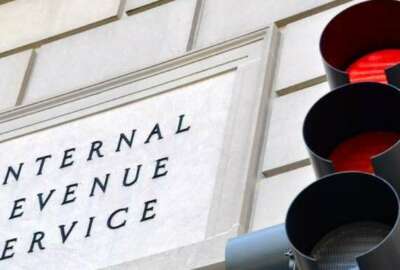

The president signed a bill Monday that would allow the IRS to expedite hiring for tech leadership positions and offer them pay closer to the private sector.
IRS watchdogs have sounded alarms for years about the state of the tax agency’s legacy information technology systems, but President Donald Trump signed a bill Monday that would allow the agency to once again expedite hiring for tech leadership positions and offer them pay closer to what they’d earn in the private sector.
The Taxpayer First Act contains several provisions aimed at strengthening the agency’s taxpayer services functions, but the bill also reauthorizes critical pay authority until the end of fiscal 2025 – two years longer than a similar provision the House passed in a “minibus” package of spending bills for fiscal 2020.
Under this critical pay authority, the IRS can make up to 40 new hires at any one time, and bring those new temporary employees onboard within six-to-eight weeks. Hires made under this authority can work at the IRS for a maximum of four years, and the agency can also expedite removal of poor performers.
Congress allowed the authority to lapse in 2013, but leadership at the IRS over the past two administrations have urged Congress to bring back the critical pay authority almost immediately after it expired.
John Koskinen, former IRS commissioner under the Obama administration, and current IRS Commissioner Chuck Rettig has urged lawmakers to bring back critical pay authority since his confirmation hearing last year.
A December 2014 report from the Treasury Inspector General for Tax Administration found the IRS had made 168 hires under this streamlined authority between 1998 and 2013. Those hired received base salaries ranging from $130,000 to more than $227,000. By comparison, 2013 base pay for members of the agency’s Senior Executive Service maxed out at $179,700.
House Ways and Means Committee Ranking Member Kevin Brady (R-Texas), oversight subcommittee Ranking Member Mike Kelly (R-Pa.) and House Financial Services Ranking Member Patrick McHenry (R-N.C.) stood alongside the president during the bill’s signing in the Oval Office.
“This historic legislation is the biggest and boldest step in over 20 years to redesign and restructure the IRS into an agency with a singular mission — quality taxpayer service,” Kelly wrote in a tweet Monday following the bill’s signing.
House Ways and Means Chairman Richard Neal said the bills amounted to the most significant taxpayer services bill passed in more than 20 years.


The Taxpayer First Act tasks the IRS with issuing uniform guidance for the electronic signatures. Under the 21st Century Integrated Digital Experience (IDEA) Act, agencies should have already submitted a draft plan to the Office of Management and Budget last month.
The bill also overhauls the defunct IRS Oversight Board, first introduced in Sen. Rob Portman’s Protecting Taxpayers Act last year, and requires the agency to develop a comprehensive employee training strategy focused on digital services.
“This bill, now law, represents the most significant reform to the IRS in two decades and is an important first step toward restoring full faith in one of our government’s most important agencies,” Portman said in a statement Monday.
Copyright © 2025 Federal News Network. All rights reserved. This website is not intended for users located within the European Economic Area.
Jory Heckman is a reporter at Federal News Network covering U.S. Postal Service, IRS, big data and technology issues.
Follow @jheckmanWFED
